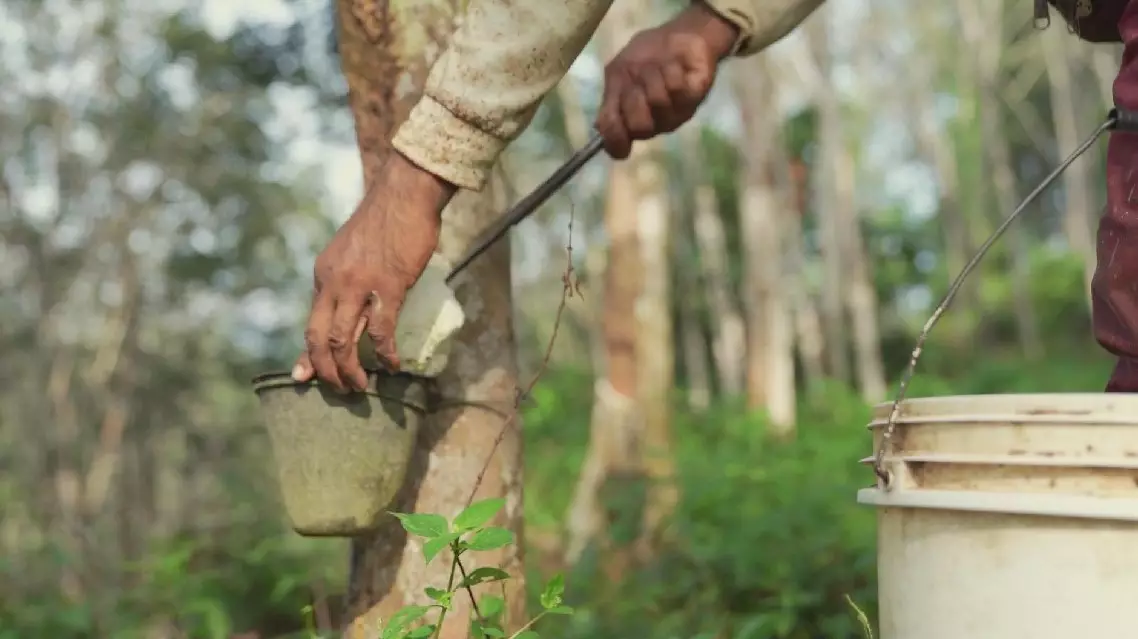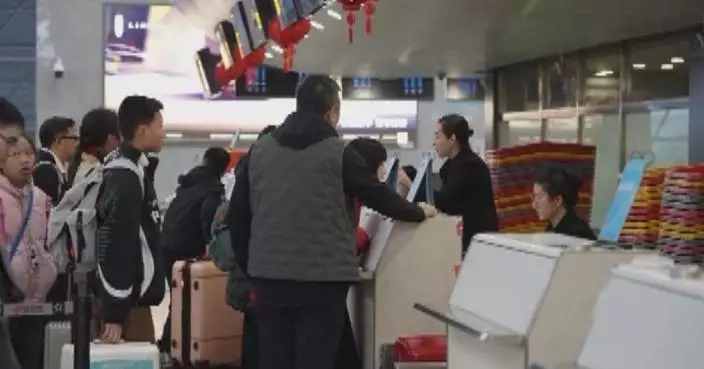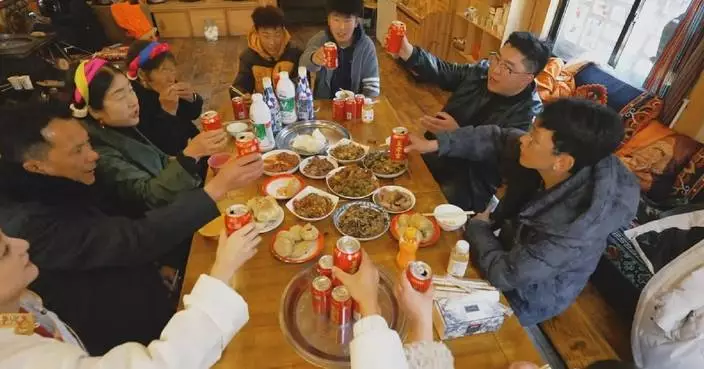Malaysia's natural rubber producers are struggling to make ends meet as mounting challenges including climate crisis continue to slash output in this once-thriving industry.
The southeastern Asian country used to be the world's largest natural rubber producer. But the yield now falls to less than one-fifth of its peak. Industry data showed rubber prices have surged by more than 5 percent over the past month.
Pahang state is a traditional rubber-producing base. At midnight, while most people are asleep, local rubber tappers begin their work.
Unlike the harvesting of ordinary crops, rubber tapping must be done at night to prevent latex coagulation caused by high temperatures in daytime. Karam from Bangladesh is a foreign rubber tapper hired by the plantation. He works from midnight to noon, harvesting 800 to 900 rubber trees a day, with a monthly salary of around 6,000 Malaysian ringgit, or over 1,400 U.S. dollars.
During Karam's work in Malaysia, the country's annual rubber production plummeted from one million tons in 2011 to less than 350,000 tons in 2023, down by 65 percent.
According to the government-run Malaysian Rubber Board, over 86 percent of natural rubbers in the country are produced by small farms like the one Karam works at. The combination of labor shortages, extreme weather events, and increasing pests and diseases have forced many smallholders to abandon tapping. In 2023, Malaysia's planted area for natural rubber totaled 1.14 million hectares, with over 420,000 hectares or 37 percent lying idle.
"I haven't seen such a pest problem in the past few decades. It gets too severe recently, which is partly due to climate issues," said Li Shuhua, owner of a local rubber plantation.
As production declines, rubber traders are also lamenting dwindling profits.
"We make little money now compared with seven or eight years ago, only 30 percent to 40 percent of the original earnings," said Peng Junbao, owner of a rubber purchasing station.
The purchasing station will transport the rubber collected from each farm to a nearby processing factory, where it undergoes drying, washing, grinding, pressing, and curing to supply dry rubber to downstream companies.
Li Kaisheng is the fourth-generation owner of the factory established by his great-grandfather in the 1960s. He told CCTV that the workforce has shrunk from 70 employees in 2008 to just 20 today due to a shortage of raw materials.
Li expressed concern that as the upstream production capacity continues to decline, it could be difficult to recover the cost of expanding investment, leaving them with no choice but to maintain the status quo.

Malaysian rubber output faces sharp decline amid various odds









